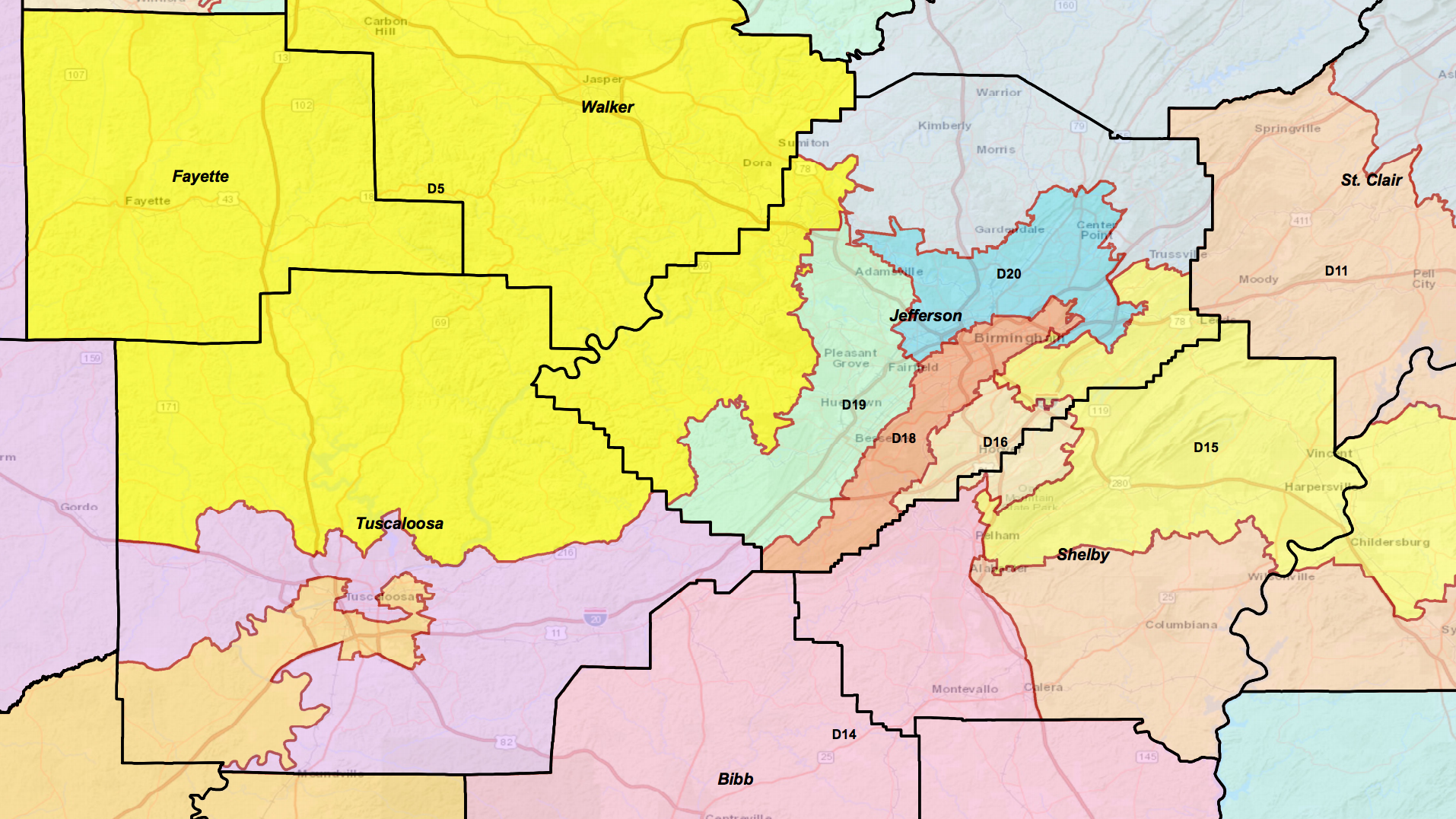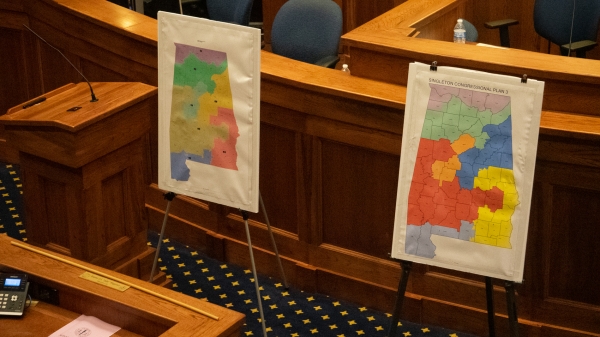By Chip Brownlee
Alabama Political Reporter
MONTGOMERY — Alabama Senate Republicans on Thursday passed a new legislative redistricting plan that will adjust more than 20 Senate districts. The plan passed against the wishes of black lawmakers who argued that it doesn’t fairly divide Jefferson County or fully alleviate racial gerrymandering concerns.
The new legislative districts come after a January three-judge federal court ruling found that 12 of the state’s legislative districts were unconstitutional because lawmakers improperly used race to draw district lines.
Three of the unconstitutional districts were in the Senate, but subsequent Supreme Court decisions led Republican redistricting chair Sen. Gerald Dial, R-Lineville, to expand the focus of the redistricting committee ahead of the 2018 statewide general election.
Black Democrats, who were the plaintiffs in the federal court case, filibustered the plan in the Senate and had the full bill read at length by a robot reader to delay its passage while they tried to work out a deal. It was later passed, after four hours of debate, by a party-line vote of 25–7.
“Our directions were to put back together as much as possible county lines and precinct lines,” Dial said. “We think we have a plan can be fully supported through the legal process.”
Republicans, who drew the lines in 2010, said they were trying to maintain majority-black districts in order to comply with the Voting Rights Act. But several Supreme Court decisions, including Shelby County v. Holder in 2013, struck down many of the racial requirements for redistricting.
The Black Caucus, who challenged the lines in court, said they were packing black voters, who often support Democrats, into a handful of districts to limit the Democrats’ power. Now the Legislature is largely drawing lines without considering race, then they will go back and see if any majority-minority districts’ demographics would be changed too dramatically.
Some Democratic lawmakers argue that the new Republican plan doesn’t fix all of the problems addressed by the federal court’s ruling. They said the Republicans and their attorneys are misinterpreting court rulings.
“What I don’t want us to do is get back to where we were again,” said Sen. Bobby Singleton, D-Greensboro.
If redistricting plans pass through the State House before the May 25 deadline set to have a new plan before the 2018 elections, the maps will be sent back to the federal court for review. Democrats say the court should reject the plan because it doesn’t resolve all of the issues raised by the court, which would likely result in court-drawn maps that would leave lawmakers out of the process entirely.
Democrats in the Legislature had promised to hold up progress on the redistricting process because of disagreement over Jefferson County’s Senate and House delegations. Sen. Rodger Smitherman, D-Birmingham, offered an amendment to the bill that would have changed the party split in Jefferson County.
After it failed, he used a procedural delay tactic to have the bill read at length for more than four hours.
Black Democratic lawmakers from Alabama’s largest county, home to a population that is 40 percent black, say the current split in the Jefferson County delegation of five Republicans and three Democrats does not accurately reflect the views of the county, which often votes Democratic. The new Senate plan reduces the disparity, but would still have a Republican-leaning Jefferson County delegation of four Republicans and three Democrats.
“This is a gerrymandering, racial discrimination case,” Smitherman said. “We were sent back to handle that problem.”
The plan would take Sen. Cam Ward, a Republican with a small portion of Jefferson County in his district, out of the county entirely.
In total, 21 Senate districts are changed in the plan, though many are minor changes. Five of the districts are heavily adjusted in the plan. Seven counties are put back together in the plan and more than 40 precincts were made whole again.
According to rules adopted by the committee in February, the committee agreed upon a goal of retaining counties and precincts as complete as possible, Dial told APR last week. The decision by the committee was predicated by the Supreme Court’s decision in another reapportionment case out of Virginia, Bethune-Hill v. Virginia State Board of Elections, which was starkly similar to Alabama’s situation.
The court found that Virginia improperly aligned their districts based on race as well, and ordered them to redraw them based on retaining the integrity of county and precinct lines. That means that the goal is no longer maintaining minority representation, Dial said.
“They were really adamant about splitting precincts and county lines when you don’t have to,” Dial said. “We integrated that decision to where we were. That’s why we expanded the number of counties that will be affected by the reapportionment.”
Democrats in the House slowed down the calendar and held the House in session late into the night on Tuesday after Republicans in a House committee passed through their plan against Democratic objections. The House plan could be on the floor next week.
The GOP plan in the House changes about 70 House districts, but most of the disagreement over the redistricting plan there also surrounds the makeup of Jefferson County and its delegation. The plan, according to Democrats, would bring another Republican into the Jefferson County delegation because of changes in outlying districts.
The new Republican would tip the scales on the local Jefferson County delegation in favor of the Republicans.
“Jefferson County is the economic center of the whole state,” Rep. John Rogers, D-Birmingham, said Tuesday. “They want to try to maintain control of Jefferson County. That’s the basic thing they’re trying to do.”
The Senate plan will head to the House now for another vote with only six legislative days left in the session.
Email Chip Brownlee at [email protected] or follow him on Twitter.





















































